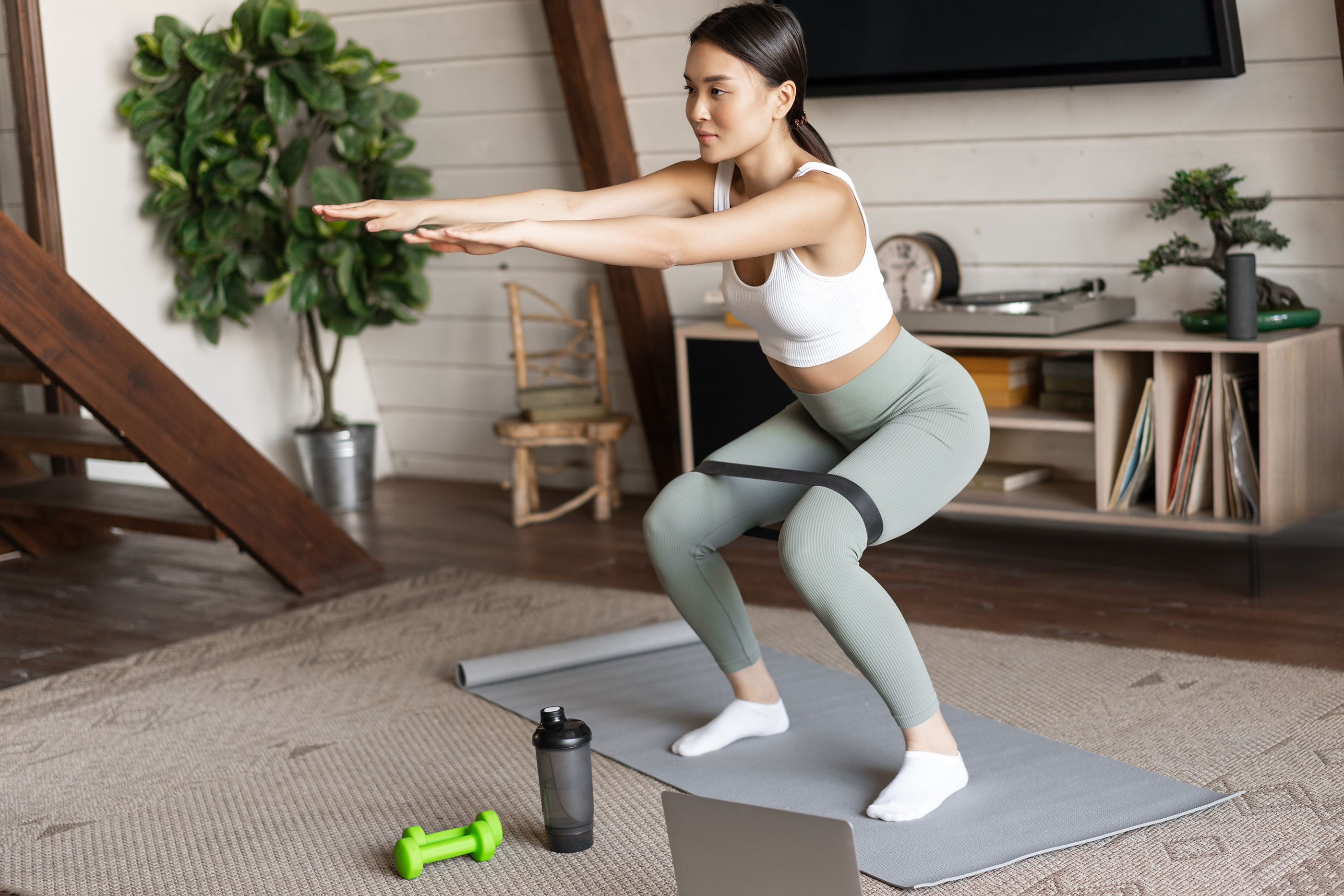
Rylee Lueken
January 15, 2026
•
8 min read

Discover how movement improves mood, reduces anxiety, and can be more effective than medication.
When we think of exercise, we usually picture fitness goals—abs, steps, sweat. But what if movement could be more than physical? What if it could heal your mind?
More and more research is showing that exercise is not just good for the body—it’s powerful mental health medicine. Whether you’re managing anxiety, lifting yourself out of low moods, or just looking to feel a little more like yourself, movement can help.
In this blog post, you’ll learn:
Let’s break down the data—and get you moving in a way that truly supports your mental health.
According to the National Center for Biotechnology Information: Exercise improves mental health by reducing anxiety, depression, and negative mood and by improving self-esteem and cognitive function.
Translation? Movement affects both how you feel and how your brain functions, making it a unique mind-body medicine. That’s not just feel-good fluff—it’s biology. Exercise stimulates brain chemicals like endorphins and dopamine, while also increasing blood flow to the brain and supporting healthy neural function.
It also works on a psychological level: Regular exercise improves cognitive function, brain structure, and mental health. This means you're not just improving your mood—you’re literally strengthening your brain.

Believe it or not, yes—and we’ve got the data to prove it. A massive study from the University of South Australia, analyzing results from over 128,000 people, found something remarkable: “Physical activity is 1.5 times more effective than counselling or the leading medications.”
That’s not to say medication and therapy aren’t important tools—but it does mean exercise should be considered a front-line option, not just an afterthought.
Supporting this, a randomized clinical trial reported in the Harvard Health Blog found: “Exercise was as effective as medication for reducing symptoms of depression in that sample.”
And it’s not an isolated case. A broader analysis in Medical News Today confirmed: “Most evidence suggests that exercise, particularly aerobic training, improves depression- and anxiety-related outcomes … with treatment effect sizes paralleling those for conventional pharmacotherapeutic approaches.”
Here’s the best part: you don’t need to “go hard” to get results. Even short, simple movement can shift your mental state.
The Mayo Clinic reports: “As little as five minutes of aerobic exercise can begin to stimulate anti-anxiety effects. Further, a 10-minute walk may have the same psychological benefits as a 45-minute workout.”
Think about that: just 5–10 minutes of movement can lift your mood and calm your mind. That’s a coffee break, a loop around the block, or a few stretches between classes or meetings. Even a few weeks of intentional movement can lead to real changes in how you feel.
The British Public Health Network adds that a wide range of activities are effective—not just cardio: “Aerobic exercise—particularly at moderate intensity—and resistance training were found to be the most effective.”

If starting an exercise habit feels overwhelming, don’t stress—short-term efforts really do pay off.
According to the UniSA review: Exercise interventions that were 12 weeks or shorter were most the effective at reducing mental health symptoms.
In other words: you don’t need to commit to a yearlong plan or crush a fitness challenge. A few months (or even weeks) of consistent movement can significantly improve how you feel.
Ready to try it yourself? Here’s how to get started—with science on your side:
Even 5–10 minutes a day of walking, stretching, or dancing counts. Consider tracking the habit in Brightn’s habit tracker!
Try aerobic exercises (like brisk walking, biking, or swimming) and resistance training (like bodyweight exercises or yoga). Both have shown mental health benefits.
Find movement you enjoy so it becomes something you look forward to—not a chore.
Use Brightn’s mood tracker to log how you feel before and after each session. You'll likely start noticing patterns within a week or two.
Try to move at least a few times a week for 4–12 weeks. That’s when most benefits start to solidify.
The data is clear: exercise is one of the most powerful tools we have for supporting mental health. It lifts mood, sharpens thinking, lowers anxiety, and improves self-worth—and it often works just as well, if not better, than traditional treatments.
So, the next time you feel stuck, stressed, or low, remember this: your body is already part of your healing. You don’t have to be a fitness buff. You just have to move—consistently, intentionally, and with compassion.

🌟 How Brightn Can Help
If you’re ready to explore movement as mental health medicine—but aren’t sure where to start—Brightn makes it simple. Our AI-powered mental health app is designed to help you build healthy habits that support your mood, motivation, and overall wellbeing.
With Brightn, you can:
You don’t have to do this alone—and you don’t have to figure it out from scratch. Brightn helps you make movement meaningful, not overwhelming.

Q1: Can exercise really replace medication for depression or anxiety?
Exercise can be as effective as medication for many people, particularly for mild to moderate symptoms. A University of South Australia study found that physical activity is 1.5 times more effective than counselling or the leading medications in managing mental health symptoms. However, it’s important to speak with a healthcare provider before making changes to your treatment plan.
Q2: How much exercise do I need to feel better mentally?
Even a 10-minute walk can positively affect your mental state. The Mayo Clinic reports that “as little as five minutes of aerobic exercise can begin to stimulate anti-anxiety effects.” Consistency matters more than duration—aim for movement a few times a week.
Q3: What kind of exercise is best for mental health?
Both aerobic exercise (like walking or biking) and resistance training (like bodyweight exercises or yoga) are effective. The British Public Health Network highlights these two forms as the most beneficial for mental well-being.
Q4: How soon will I feel the mental benefits of exercise?
You might notice shifts in mood after just one session, but research shows that programs lasting 12 weeks or less can lead to meaningful improvements in symptoms of anxiety and depression (University of South Australia).
Q5: Do I need a gym or equipment?
No! Movement can be simple and accessible. Walks, stretches, dancing in your room—it all counts. The key is regular, intentional movement that you enjoy.
Ready to take charge of your mental wellness? Try Brightn free today.